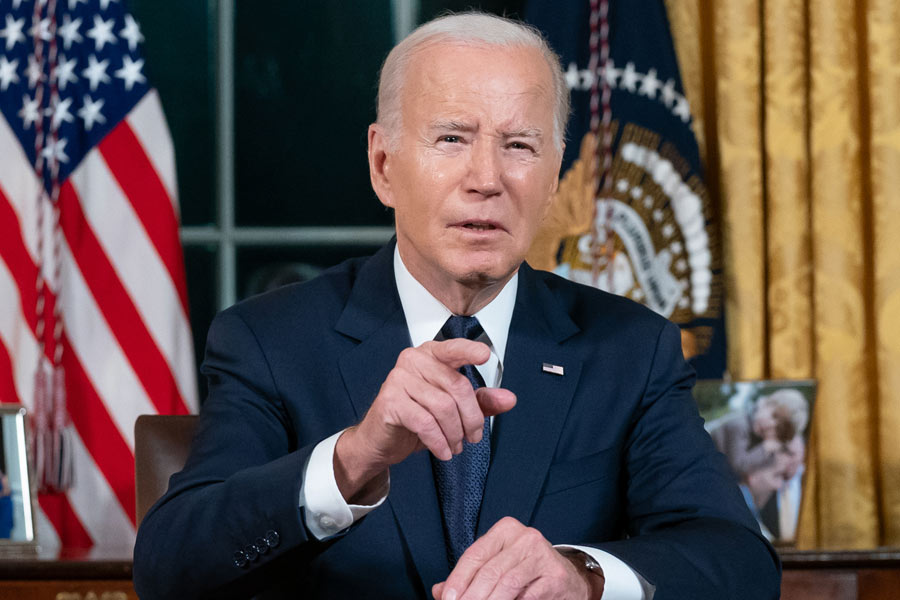President Joe Biden called on Americans on Thursday to stand behind Israel and Ukraine, making the case in a prime-time address that providing military and economic aid to the countries is in the interest of global stability and national security.
The 15-minute speech, only his second delivered from the Oval Office, shifted between two very different global conflicts as the President sought to connect the dots for Americans who are watching wars unfold half a world away. Ukraine and Israel, he said, both face threats of annihilation by tyrants and terrorists.
“History has taught us that when terrorists don’t pay a price for their terror, when dictators don’t pay a price for their aggression, they cause more chaos and death and more destruction,” Biden said from behind the Resolute Desk. “They keep going. And the cost and the threats to America and the world keep rising.”
The Biden administration formally asked Congress for $105 billion in emergency funding on Friday, including $10.6 billion in military support for Israel and $61.4 billion to continue providing weapons and economic assistance to Ukraine as it battles Russia.
The request also includes about $9 billion in humanitarian assistance for Israel, Gaza and Ukraine.
The President’s efforts to build support for a major projection of American influence abroad come against the backdrop of a deeply fractured population at home, political dysfunction in Congress, economic uncertainty and the possibility of an election-year rematch against a former President facing multiple criminal indictments.
In the days ahead, Biden is sure to face questions about whether the US can afford to be financing two foreign wars. Although the US economy has proved remarkably resilient this year, new data is expected to show on Friday that the deficit approached $2 trillion this fiscal year, and inflation remains uncomfortably high.
On Thursday, Biden described his request for aid as “a smart investment that’s going to pay dividends for American security for generations”. But he faces scepticism among members of both parties: progressive Democrats who fiercely oppose sending arms to Israel and conservative Republicans who have questioned the need to add to the more than $100 billion already approved in military and economic aid already sent to Ukraine.
The President’s request arrives on Capitol Hill at a time of turmoil among House Republicans, who have failed for 16 days to pick a Speaker. The political paralysis has left lawmakers unable to act on legislation, including new aid for either Ukraine or Israel.
In his speech, Biden urged lawmakers to resolve their differences and come together swiftly to embrace America’s role as what he called the “essential” country.
“American leadership is what holds the world together,” he said. “American alliances are what keep us, America, safe. American values are what make us a partner that other nations want to work with.” “To put all that at risk,” he added, “if we walk away from Ukraine if we turn our backs on Israel, it’s just not worth it.”
The Israel conflict may have given Biden a path to approving Ukraine aid that otherwise might have remained stalled by combining the requests into one package.
For Biden, the challenge is to convince Americans that the US must engage with the world beyond its borders even as many of them remain focused on concerns closer to home: inflation, health care, jobs, immigration and crime.
A majority of people in recent surveys said the US should help Israel in its fight with Hamas, but about one-third of Democrats do not want to send weapons. Support for continuing to arm Ukraine has dropped significantly since the war began nearly 20 months ago.
New York Times News Service










